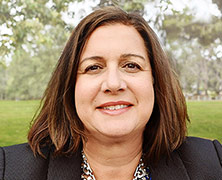What the Pandemic Has Taught Us about Work
The pandemic has caused a seismic shift in our zeitgeist, especially in the legal industry. Most law firms tend to have traditional outlooks on the workplace (i.e., everyone must work in an office, meetings need to be face-to-face, things only get done when people are in-person, etc.). The pandemic challenged all preconceived notions when it forced the world to work remotely, including older professionals in more established positions who were forced into it. What transpired was the realization that people can be very productive while working from home.
Over the next five years, employers will realize that they can continue to offer more flexibility, while receiving a quality work product. People will spend less time sitting in traffic and be happy to have the time back in their day to be more productive in other areas of their lives, including work. Fewer people in traffic also means a reduced global footprint, and anyone can just as work just as effectively via Zoom, rather than trekking to the office.
The flexibility to work from home also allows us to have people in the workforce who may otherwise have “dropped out.” Now that we have learned that people can be connected in nontraditional ways, we do not have to lose talent because they need additional flexibility or an alternative path.
Another thing I hope will evolve out of the pandemic in the next five years is that employers will embrace the humanity of those who work for them. Prior to 2020, working parents were often taught that they needed to keep parenthood and work separate, and it is “not professional” to talk about family or leave work to tend to children. The pandemic dropped us into each other’s homes and personalized us as people. We were exposed to each other’s lives and shared the struggle of parenthood. We were more productive because we were in our element and allowed to be ourselves without the parental guilt that plagues many of us.
If the workplace evolves to allow more people to work from home over the next five years, I hope the extra time we receive will be considered a gift allocated toward finding balance in our lives rather than more work. The time should be put into family, the community, local charities, and other work to help us all be more fulfilled people and members of society.







